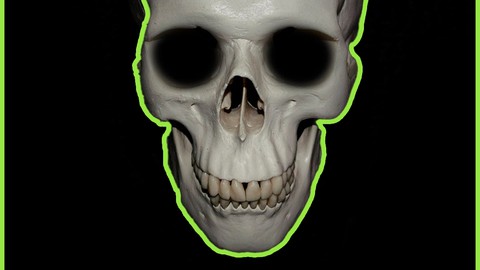
How To Become Well With Analytical Psychology
How To Become Well With Analytical Psychology, available at Free, has an average rating of 4.35, with 21 lectures, 1 quizzes, based on 24 reviews, and has 676 subscribers.
You will learn about The History and Theory of Analytical Psychology The Common Problems People Seek Cured By Analytical Psychology The Science of Analytical Psychology The Techniques of Analytical Psychology This course is ideal for individuals who are Everyone It is particularly useful for Everyone.
Enroll now: How To Become Well With Analytical Psychology
Summary
Title: How To Become Well With Analytical Psychology
Price: Free
Average Rating: 4.35
Number of Lectures: 21
Number of Quizzes: 1
Number of Published Lectures: 20
Number of Published Quizzes: 1
Number of Curriculum Items: 22
Number of Published Curriculum Objects: 21
Original Price: Free
Quality Status: approved
Status: Live
What You Will Learn
- The History and Theory of Analytical Psychology
- The Common Problems People Seek Cured By Analytical Psychology
- The Science of Analytical Psychology
- The Techniques of Analytical Psychology
Who Should Attend
- Everyone
Target Audiences
- Everyone
Analytical psychology is a psychological approach developed by Swiss psychiatrist Carl Gustav Jung. Jungian psychology, as it is also known, emphasizes the exploration of the deeper layers of the psyche and the integration of unconscious elements into conscious awareness. Analytical psychology is known for its focus on symbols, archetypes, and the individuation process—the journey towards realizing one’s true and unique self.
Key concepts and features of analytical psychology include:
-
Collective Unconscious:
-
Jung proposed the existence of a collective unconscious, a layer of the unconscious mind shared by all human beings. It contains universal symbols, themes, and archetypes that shape human experiences and behaviors.
-
-
Archetypes:
-
Archetypes are universal, recurring symbols or motifs that emerge from the collective unconscious. Examples include the hero, the mother, the shadow, and the anima/animus. Archetypes influence thoughts, feelings, and behaviors, contributing to the understanding of myths, stories, and dreams.
-
-
Persona and Shadow:
-
The persona represents the social mask or role that an individual presents to the outside world. The shadow, on the other hand, consists of repressed or hidden aspects of the self, both positive and negative. Jungian therapy often involves exploring and integrating the shadow for personal growth.
-
Other key features are discussed within this course too.
-
This course educates all learners from the absolute beginner to the more advanced learner, to the benefits and criticisms of Analytical Psychology. Within this course, Dr. Conor Hogan simplifies the presumed difficulties of Analytical Psychology into practical examples so that the learner feels comforted and confident in their learning of the topic.
Course Curriculum
Chapter 1: Parts 1-7
Lecture 1: Analytical Psychology Part 2
Lecture 2: Analytical Psychology Part 3
Lecture 3: Analytical Psychology Part 4
Lecture 4: Analytical Psychology Part 5
Lecture 5: Analytical Psychology Part 6
Lecture 6: Analytical Psychology Part 7
Lecture 7: Bonus
Lecture 8: The History of Analytical Psychology
Lecture 9: The Science of Analytical Psychology
Lecture 10: The Theroy of Analytical Psychology
Lecture 11: Carl Gustav Jung
Lecture 12: The Techniques of Analytical Psychology
Lecture 13: Dream Analysis
Lecture 14: Active Imagination in Analytical Psychology
Lecture 15: Sandplay Therapy
Lecture 16: Word Association
Lecture 17: Active Engagement
Lecture 18: Psychodrama
Lecture 19: The Exploration of Archetypal Figures
Lecture 20: The Mandala Creation
Instructors
-
Dr. Conor Hogan Ph.D.
Educator
Rating Distribution
- 1 stars: 1 votes
- 2 stars: 0 votes
- 3 stars: 2 votes
- 4 stars: 8 votes
- 5 stars: 13 votes
Frequently Asked Questions
How long do I have access to the course materials?
You can view and review the lecture materials indefinitely, like an on-demand channel.
Can I take my courses with me wherever I go?
Definitely! If you have an internet connection, courses on Udemy are available on any device at any time. If you don’t have an internet connection, some instructors also let their students download course lectures. That’s up to the instructor though, so make sure you get on their good side!
You may also like
- Best Emotional Intelligence Courses to Learn in March 2025
- Best Time Management Courses to Learn in March 2025
- Best Remote Work Strategies Courses to Learn in March 2025
- Best Freelancing Courses to Learn in March 2025
- Best E-commerce Strategies Courses to Learn in March 2025
- Best Personal Branding Courses to Learn in March 2025
- Best Stock Market Trading Courses to Learn in March 2025
- Best Real Estate Investing Courses to Learn in March 2025
- Best Financial Technology Courses to Learn in March 2025
- Best Agile Methodologies Courses to Learn in March 2025
- Best Project Management Courses to Learn in March 2025
- Best Leadership Skills Courses to Learn in March 2025
- Best Public Speaking Courses to Learn in March 2025
- Best Affiliate Marketing Courses to Learn in March 2025
- Best Email Marketing Courses to Learn in March 2025
- Best Social Media Management Courses to Learn in March 2025
- Best SEO Optimization Courses to Learn in March 2025
- Best Content Creation Courses to Learn in March 2025
- Best Game Development Courses to Learn in March 2025
- Best Software Testing Courses to Learn in March 2025






















